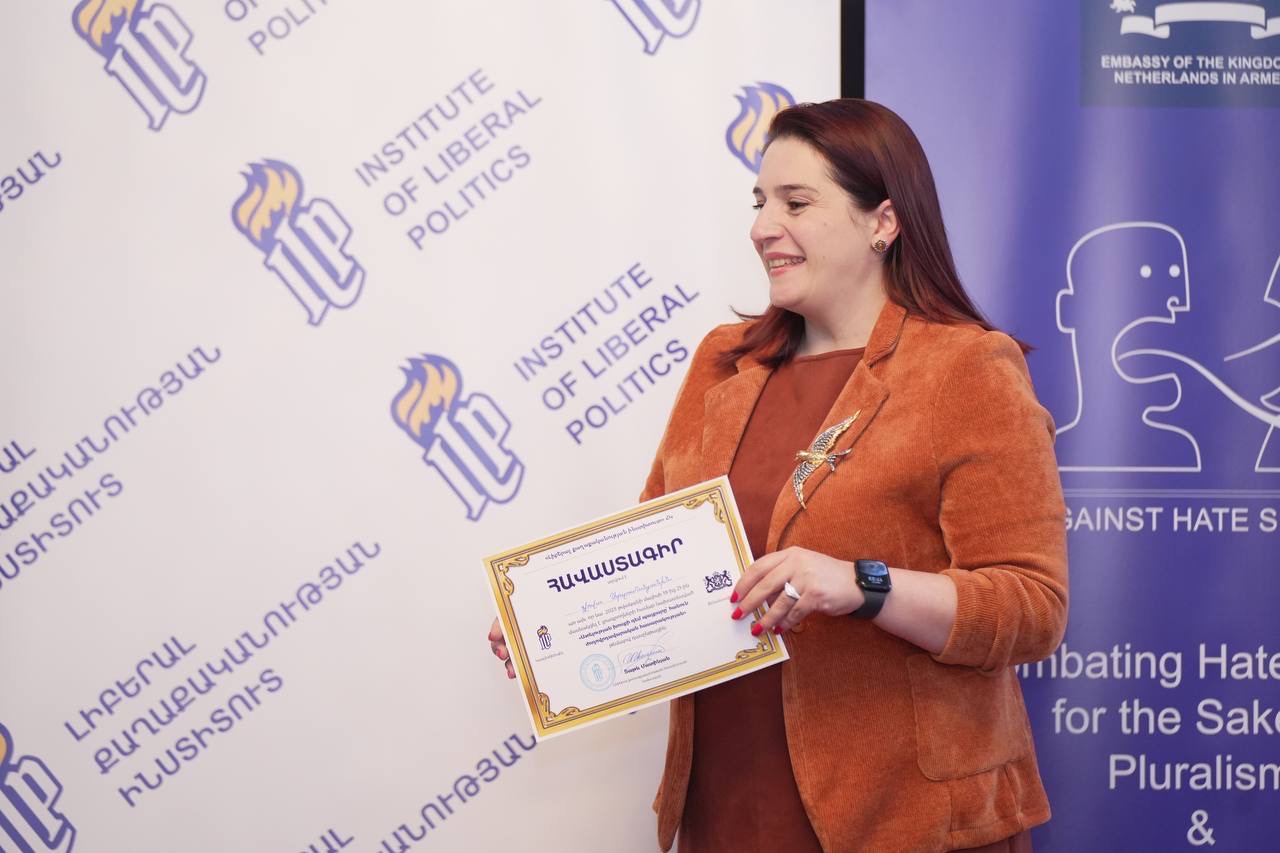
Summary of the training “Pathways for Combating Hate Speech”
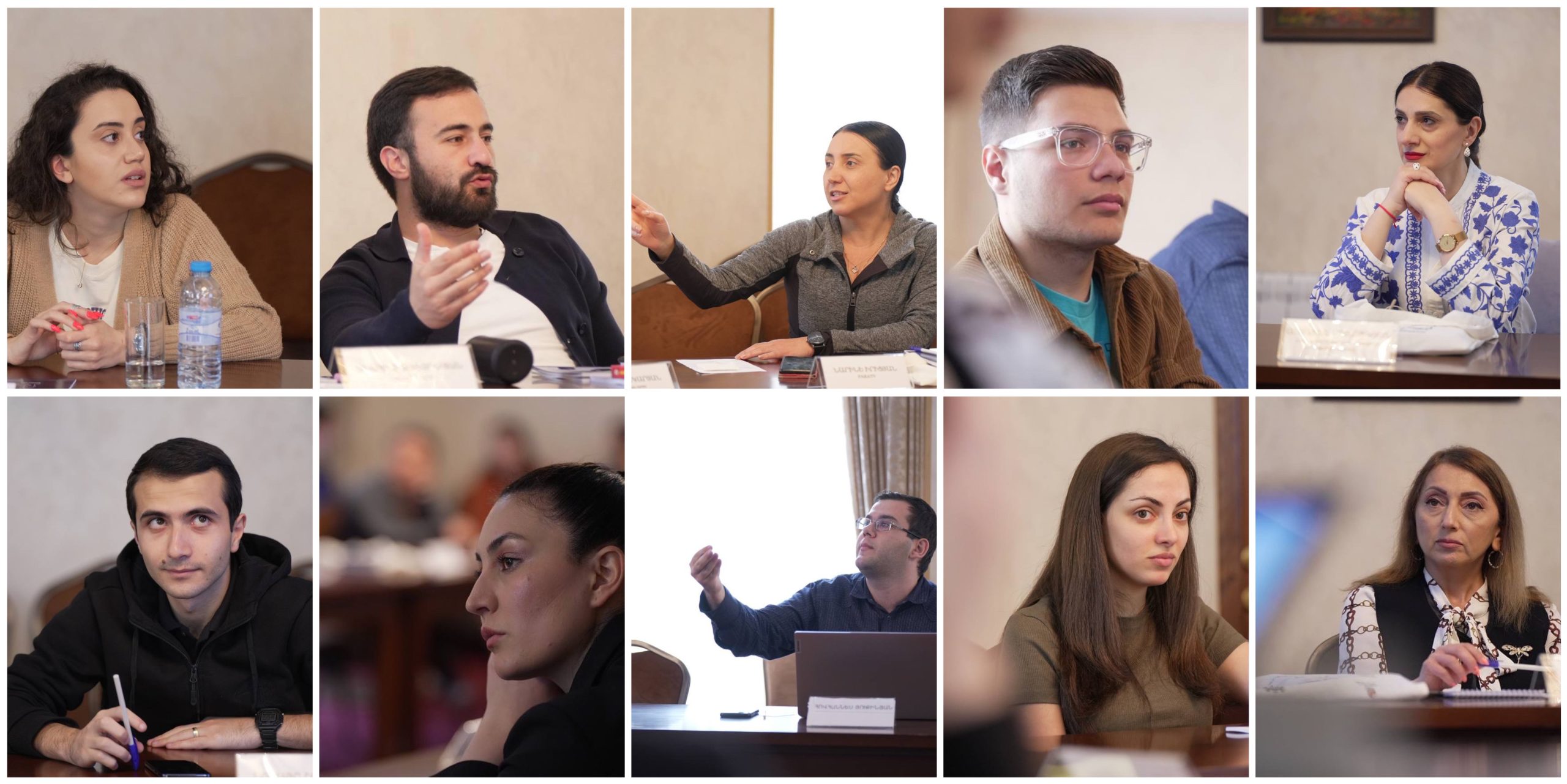
The aim of the training was to exclude hate speech in the media. It’s important to stress that the training was efficient and participative. Within the frames of the course, participants got a new set of knowledge via active discussions and various (including digital) tools.
The trainers were:

PR specialist, lecturer, associate professor at the Faculty of Sociology, YSU Nvard Melkonyan presented the results of the sociological research “Perceptions of Hate Speech by the Residents of Armenia and Manifestations of It in Media Sources and Speeches of Public Figures”. The research was done by SPRING-PR-Company. In particular, Mrs. Melkonyan presented quantitative as also qualitative data, which answered the following questions:
• Who spread hate speech?
• Where is the threshold between hate speech and freedom of speech?
The Objectives of the research are:
• Describe the opinion of various social groups about hate speech,
• Find out the main platforms which distribute hate speech,
• Find out the perceptions of RA residents on the hate-speech-distributing platforms,
• Find out the impact hate speech had on the respondents and other target groups.
During the final part of the session, a discussion started about the methods of combating hate speech and the experience of both the trainer and participants of facing hate speech.

Arpine Hovhannisyan, Ph.D. in Law, Associate Professor of Yerevan University, former Minister of Justice of Armenia, was the second speaker of the training for journalists, who presented to the participants how fake news can be used to spread hate speech by using various technologies. In the second part of the session, Hovhannisyan also touched on the limits of criticism of public authorities.
The session started with the presentation of the circumstances of the two legal processes that have a direct impact on our current reality, the cases being investigated in the Supreme Court of Kenya and the California court against the “Meta”, followed by the presentation of the “three global shocks” that are the basis of the concept of fake news.
The session ended with an active Q&A, during which Arpine Hovhannisyan answered the participants’ questions.
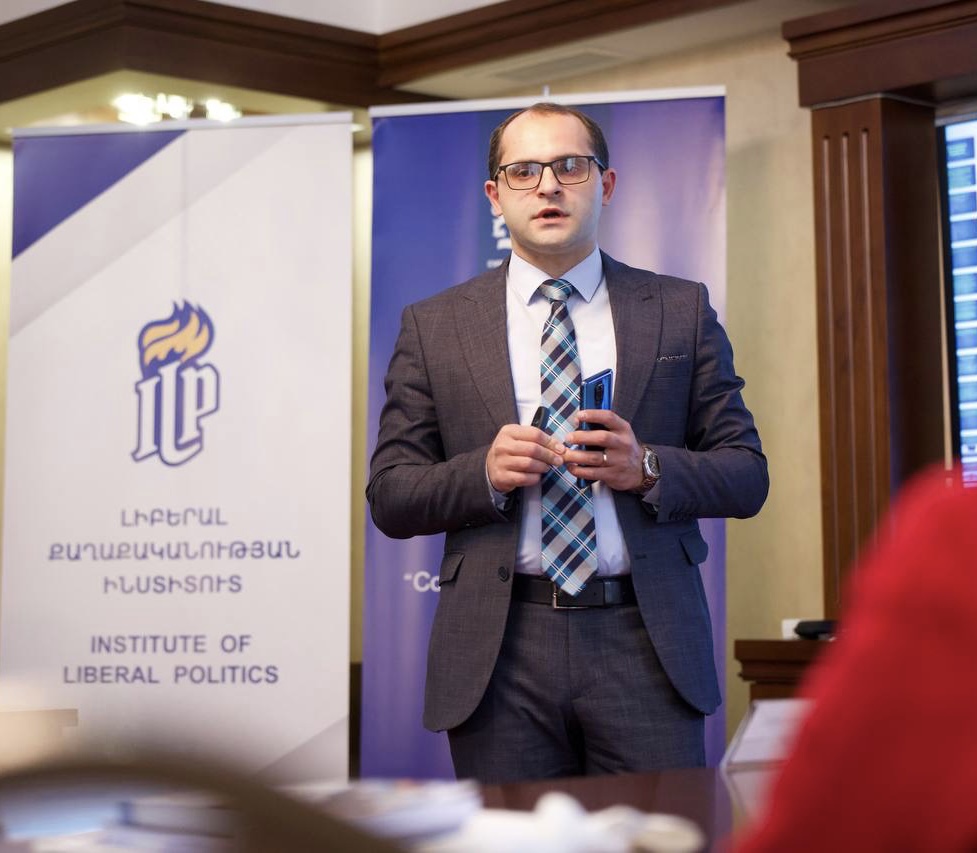
The third speaker was Aren Petunc, lecturer at the Department of Oriental Studies, YSU, head of the Department of External Relations and development projects at “ArmenPress”. He was facilitating the panel discussion. The topic was “Armenophobia in Azerbaijani Media”, which was monitored by the latter for the past 6 months within the working group.
Participants of the discussion spoke about various manifestations of Armenophobia in Azerbaijani media finding out its reasons and motivations and reflecting on the situation in Armenian media.
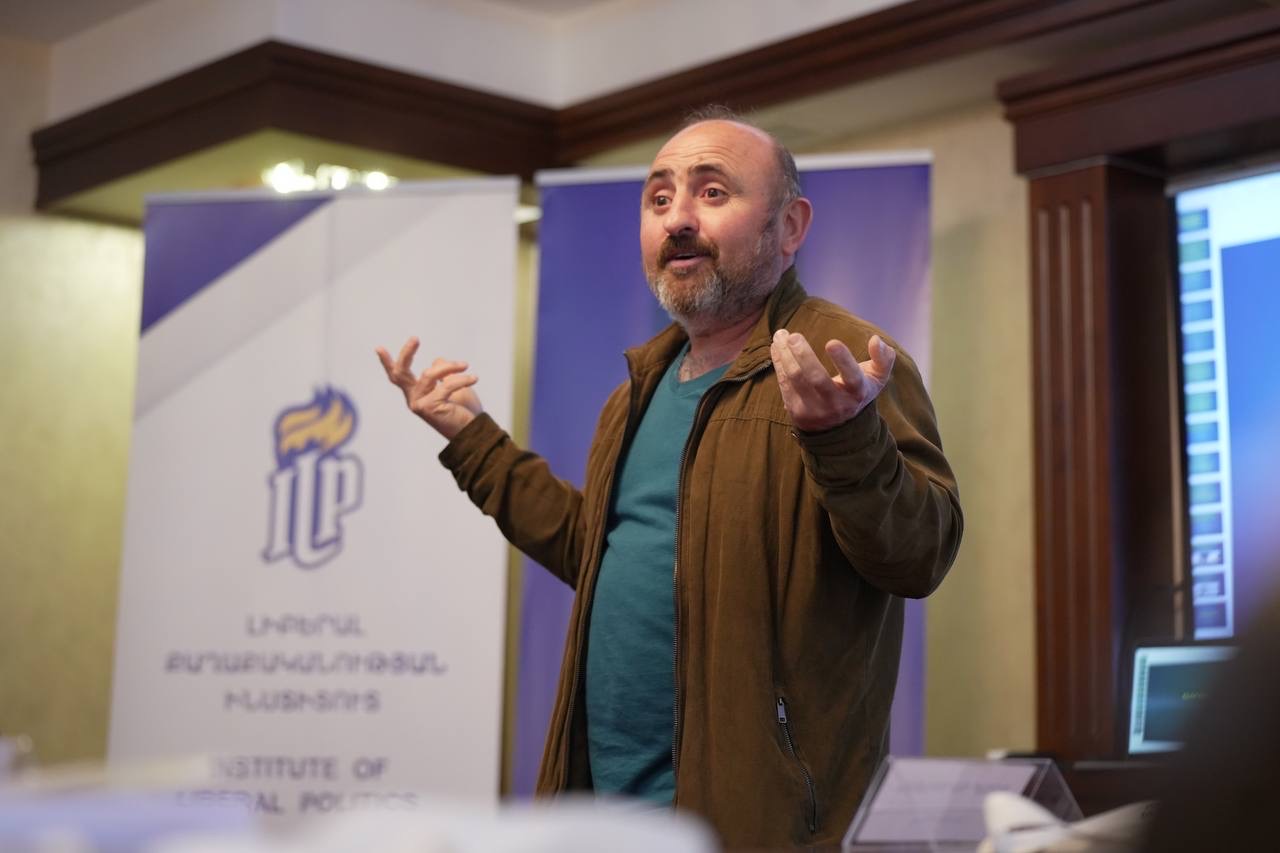
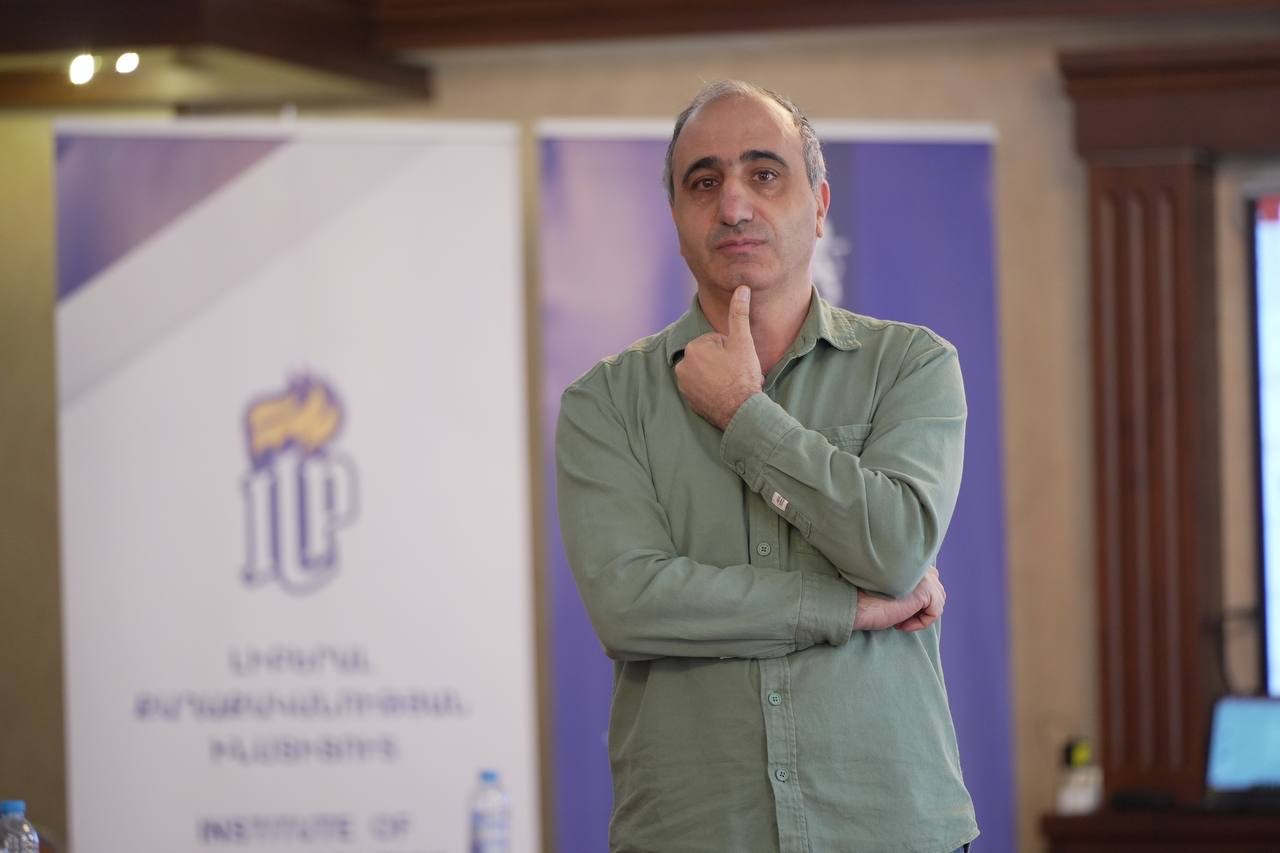
Mr. Vardanyan initiated a discussion on the following topics:
• Do the following examples contain hate speech? Which expressions are manifestations of hate speech?
• Does the journalist hold the responsibility for spreading material? How something should be published, so the journalist doesn’t become a distributor of hate speech?
• What ought to be done when hate speech is distributed during live broadcasting? What the journalist should do?
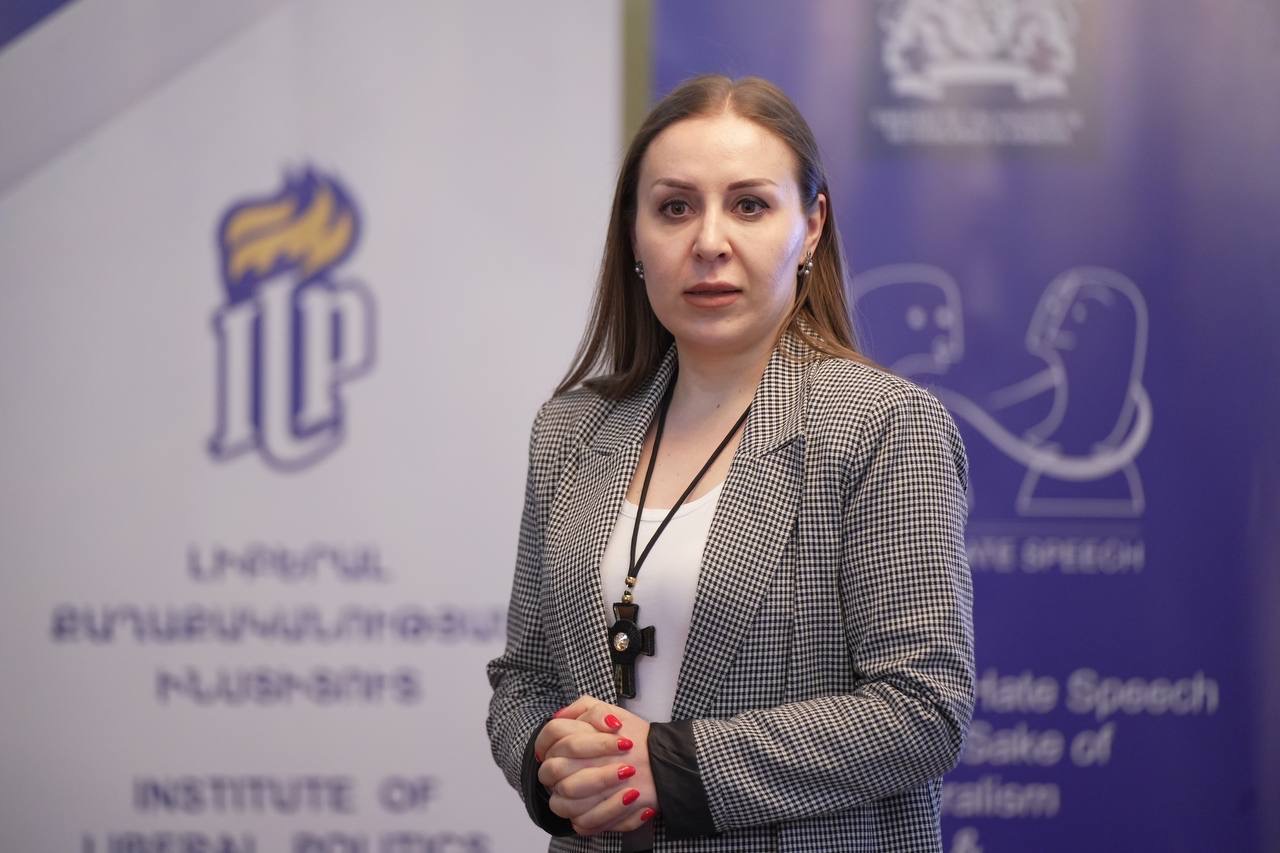
The expert of the “Protection of Rights without Borders” NGO Hasmik Harutyunyan was the sixth speaker. She spoke about “Hate Speech and Human Rights: seen and unseen consequences”.
Mrs. Harutyunyan presented a couple of interesting precedential trials in ECHR, which are relevant to the journalists, and thus can be helpful to the participants in their careers.

Advocate, an expert in the hate speech field, CoE expert Ara Ghazaryan represented “What is Hate Speech?”
The following topics were covered in the session:
• The nature of hate speech and the importance of combating it,
• Domestic and international mechanisms for combating hate speech,
• International regulations of journalism during wartime or reporting a war crime,
• Policy of “Meta” (Facebook) regarding hate speech.
The training was full of interactive discussions and mental exercises.
Participants did the “Facebook Test”, within which they tried to filter possible hate-speech-containing content through simulation and using the knowledge they got during the past days.
At the end of the course, all participants were given a certificate by the chairperson of the “Institute of Liberal Politics” Tatevik Matinyan.
